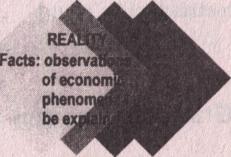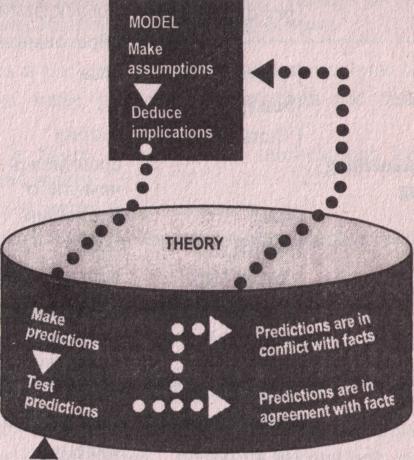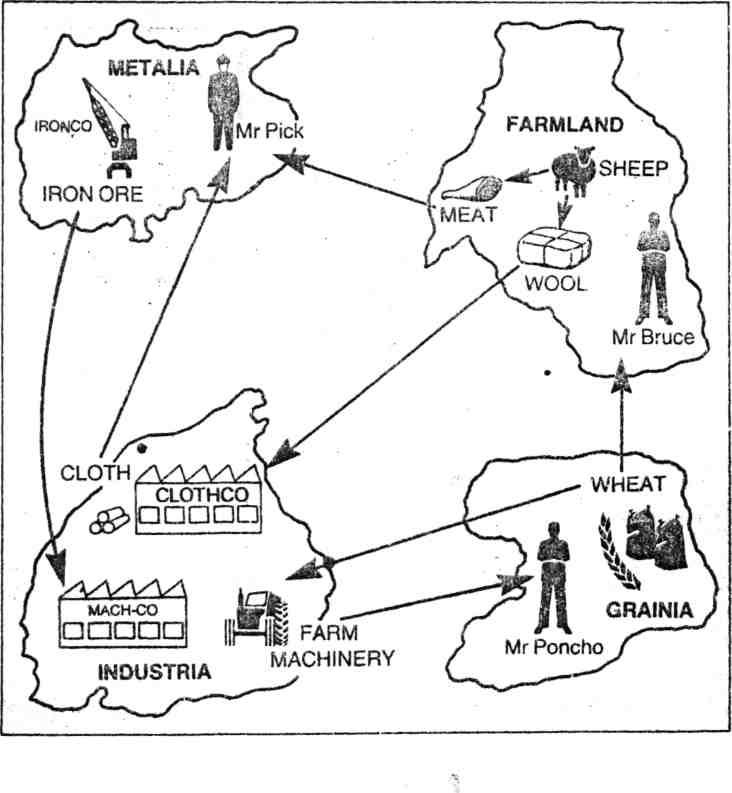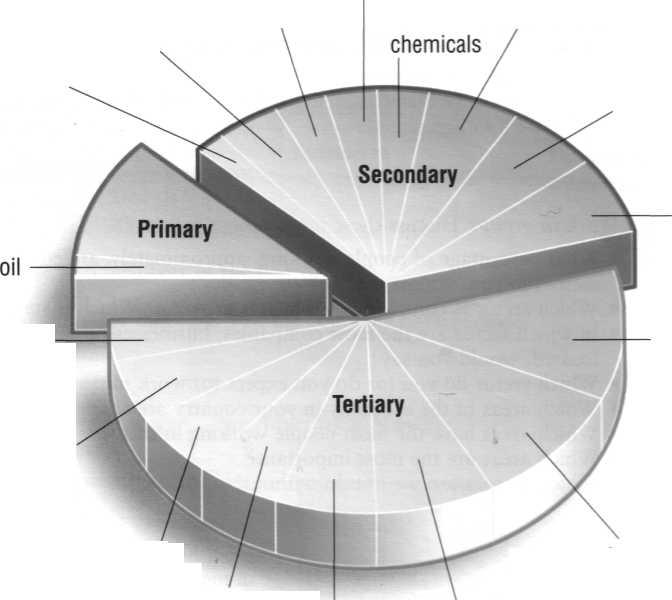
- •Economy of the uk …………………………………………………...16
- •The Economy
- •Vocabulary
- •Sectors of economy and selected product groups
- •Economy of the uk
- •Industry and agriculture of the uk
- •Vocabulary
- •Экономика Великобритании
- •Economy of the usa
- •Economy of the usa
- •Vocabulary
- •Экономика сша
- •Vocabulary training
- •354,126 587,455 725,111 74,424
- •Uk car sales by colour
- •World passenger car production in millions
- •Карточка 1
- •Франция
- •Conversation practice
- •Gross Domestic Product
- •Gross Domestic Product
- •Vocabulary
- •Foreign trade
- •Basic terms in foreign trade
- •Vocabulary
- •Vocabulary
- •Tapescript
Федеральное агентство по образованию
государственное образовательное учреждение
высшего профессионального образования
«Пермский государственный технический университет»
Чайковский филиал
Английский язык
ECONOMY OF A COUNTRY
Учебное пособие для студентов I курса
Чайковский, 2007 г.
Contents
Economy of a country …………………………………………………… 4
Economy of the uk …………………………………………………...16
Economy of the USA ………………………………………………….28
Vocabulary training .………………………………………………….38
Gross domestic product ………………………………………………….52
Foreign trade ……………………………………………………………..56
English-Russian vocabulary …………………………………………….. 61
Tapescript ………………………………………………………………..73
Economy of a country
Задание 1. Прочитайте следующие два текста. Обратите внимание на значение терминов «economics» и «economy».
Economics
Economics is a social science studying economy. Like the natural sciences and other social sciences, economics attempts to find laws or principles.
Economics tries to find laws or principles by building models. The predictions of the models form the basis of economic theories. Then the predictions of the models are compared with the facts of the real world.
The figure below shows the interrelations between models, theories and reality:



Vocabulary
|
* figure |
|
1) рисунок 2) цифра |
|
like |
|
как (при сравнении) |
|
to attempt |
|
пытаться |
|
to find (found, found) |
|
находить |
|
law |
|
закон |
|
to try |
|
стараться |
|
to build (built, built) |
|
строить |
|
prediction |
|
предсказание, прогноз |
|
to form |
|
образовывать |
|
basis pl. bases |
|
база |
|
theory |
|
теория |
|
to compare something with something |
|
сравнивать что-либо с чем-либо |
|
real |
|
реальный |
|
world |
|
мир |
|
interrelation |
|
соотношение, взаимосвязь |
|
assumption |
|
предположение |
|
to deduce |
|
выводить (заключение, следствие, формулу) |
|
implication |
|
смысл, значение |
|
observation |
|
наблюдение |
|
phenomenon pl. phenomena |
|
явление |
|
to explain something to somebody |
|
объяснять кому-либо что-либо |
The Economy
The words «the economy» are words we hear or read almost every day. For example, we may be told that «the world economy is in the doldrums», or «the European economy is making little progress out of recession», or «the UK economy beginning to recover», or « the Scottish economy has held relatively well during the recent recession».
But what is meant by the economy? What is an economy? What happens in one? How does an economy work?
The economy is a social mechanism which answers these three questions. The economy means a system for the management, use and control of the money, goods and other resources of a country, community or household.
Vocabulary
|
to tell somebody |
|
сказать кому-либо |
|
in the doldrums |
|
в упадке, в состоянии застоя |
|
little |
|
маленький, очень небольшой |
|
* recession |
|
спад |
|
to begin (began, begun) |
|
начинать (ся) |
|
* to recover |
|
оживляться, выздоравливать |
|
to hold up well
|
|
показать себя с хорошей стороны, выстоять, сохранить свои позиции |
|
relatively |
|
сравнительно |
|
to mean (meant, meant) |
|
иметь в виду, подразумевать |
|
to happen |
|
случаться |
|
management |
|
управление, менеджмент, умение справляться |
|
use |
|
1) использование 2) польза |
|
control |
|
управление, регулирование, контроль |
|
* money |
|
деньги |
|
resources |
|
ресурсы |
|
country |
|
страна |
|
community |
|
жители отдельного района |
|
* household |
|
семья, домашнее хозяйство |
Задание 2. Прочитайте и переведите следующие слова. Обратите внимание на суффиксы.
|
|
|
to employ — employee — employer — employment — unemployment | |
Задание 3. Закончите предложения, используя слова из текстов.
1) The economy is a social _____ which answers these three questions.
2) The economy means a system for the _____ of the money, goods and other resources of _____.
Задание 4. Раскройте скобки, выбрав правильную форму глагола.
Economics (attempt, attempts) to find laws or principles.
Economists (build, builds) models.
The predictions of the models (form, forms) the basis of economic theories.
The figure (show, shows) the interrelation between models, theories and reality.
Economists (make, makes) assumptions and predictions.
(Do, Does) they deduce implications?
(Do, Does) they test predictions?
Real facts often (contradict, contradicts) the theory.
Задание 5. Составьте предложение, употребив причастие I для выражения определения. Переведите полученные предложения на русский язык.
Model: Economics is a social science. It studies economy .--- Economics is a social science studying economy.
Economics is a science. It attempts to find economic laws.
Economists make predictions. They form the basis of economic theories.
There is a figure. It shows the interrelations between models, theories and reality.
The economy is a system. This system covers the management, use and control of various resources.
The economy means a system. The system manages and controls resources of a country, community or households.
Задание 6. Вспомните следующие слова:
economy, economics, industry, industries, branches of industry, types of industry, industrial, enterprise, plant, factory, to work for export, to develop, development, to occupy, important, important products, natural resources, to be rich (poor) in natural resources, iron ore, wheat, sheep, wool, machinery, farm machinery
Задание 7. Выучите новые слова по теме:
1) to advertise [’ ædvətaiz] – рекламировать
advertisement = ad [əd’və:tismənt] – реклама
2) to amount [ə’maunt]- составлять
to amount to – доходить до …
amount – количество, сумма, итог
3) article – изделие, товар, предмет производства
4) board [bo:d] – совет (орган управления)
5) commercial [kə‘mə:∫l] – коммерческий, торговый
commerce [’koməs] – коммерция, торговля
6) company [’k /\ mpəni] – компания
joint venture [oint ’vent∫ə ] – совместное предприятие
7) to consume [kən’sju:m] – потреблять, расходовать
consumer – потребитель
consumption [kən’s/\ mp∫ən] – потребление
8) to contract [kən’trækt] – заключать договор, соглашение
contract [’kontrækt] (= agreement) - договор, соглашение
9) to control [kən’troul] – регулировать, контролировать
to control prices – регулировать цены
price control – регулирование цен
10) to deal in … – иметь дело с чем-л., заниматься чем-л., торговать чем-л.
to deal with … – иметь дело с кем-л., с чем-л.
11) to decline – снижать(ся)
decline – снижение
12) to decrease [di:’kri:s] – уменьшать
decrease [’di:kri:s] – уменьшение
13) to depress [di’pres] prices – снижать цены
14) debt [det] – долг, задолженность
to accumulate [ə’kju:mjuleit] debts – накапливать долги
15) demand for – спрос на что-л.
16) to employ – нанимать на работу
17) to earn – зарабатывать; получать
earnings – заработок; доход, прибыль; поступления
18) expenditure – расход, потребление; расходы, затраты, издержки
19) to export [eks’po:t] – экспортировать, вывозить
export [‘ekspo:t] – экспорт
20) to farm – выращивать (скот), заниматься сельским хозяйством
21) to grow [grou] – выращивать, расти, увеличиваться
growth [grouӨ] – рост, развитие, увеличение, выращивание
22) goods – товар, товары
consumer goods – потребительские товары
manufactured goods – промышленные товары
foodstuffs – продовольственные товары
23) to go up (went, gone) – повышаться (о ценах)
24) figure [’figə] – цифра, показатель, коэффициент; диаграмма, рисунок
figures – показатели, данные
25) to fall (fell, fallen) – падать, понижаться
26) to import [im’po:t] – импортировать, ввозить
import [’impo:t] – импорт
27) to increase [in’kri:s] – повышать, увеличивать, увеличиваться, возрастать
increase [’inkri:s] – увеличение, повышение, рост
28) to manufacture – производить, выпускать
29) to mine – добывать
30) output – выпуск (продукции), продукция, объем производства
31) per cent (percent) [pə’sent] (= interest, percentage) – процент, проценты
32) produce [‘prodju:s] – продукты, продукция
33) product [‘prod/\kt] – продукт
production [prə’d/\k∫ən] – производство, продукция,
producer – производитель
to produce [prə’dju:s] – производить, вырабатывать
to produce … for export – производить что-л. на экспорт
34) to put money into … – вкладывать деньги в …
35) quarter [‘kwo:tə] – четверть, квартал
36) to raise – повышать, увеличивать; добывать (деньги), получать (ссуду)
37) rate – ставка, степень, уровень, размер
unemployment rate – уровень безработицы
interest rate (= percentage rate) – процентная ставка
inflation rate – уровень инфляции
38) to reduce [ri’dju:s] – сокращать, уменьшать, понижать
to reduce … by …– сокращать … на …
to reduce … to … – сокращать … до …
reduction – снижение, понижение, уменьшение, сокращение; скидка
39) to rise (rose, risen) – повышаться, увеличиваться
40) to ship – отправлять, отгружать
41) store (= shop) – магазин
42) term – период, срок; условие
43) unemployment [,/\nim’ploimənt] – безработица
unemployed – безработный
Задание 8. От данных глаголов образуйте существительные с помощью суффиксов –or, -er:
|
farm export |
mine grow |
import produce |
manufacture |
Задание 9. Используя приведенную ниже карту-схему, составьте предложения по образцу.
Model 1: Mr Bruce is a farmer. Industria is an importer.
Обратите внимание: обычно называют, что человек или страна выращивает:
e.g. a flower-grower- цветовод.
Model 2: Mr Bruce farms sheep. He produces meat and wool. Metalia imports meat from Farmland. Grainia exports wheat to Farmland.
Model 3: Cloth is manufactured by Clothco. Sheep are farmed by Mr Bruce.

Задание 10. Вспомните значение модальных глаголов.
|
|
Модальный глагол и его эквиваленты |
Выражает |
Present |
Past |
Future | ||
|---|---|---|---|---|---|---|---|
|
|
can
to be able (to)
|
физическую или умственную способность совершения действия |
can
am/is/are able (to) могу, умею |
сould
was/were able (to) мог, умел |
----
shall/will be able (to) сможет, сумеет | ||
|
|
may
to be allowed (to)
|
разрешение просьбу |
may
am/is/are allowed (to) можете, можно |
might
was/were allowed (to) разрешили |
----
shall/will be allowed (to) сможет, сумеет | ||
|
|
must
|
долженствование, необходимость совершения действия |
must должен |
---- |
----- | ||
|
|
to have (to) |
необходимость совершения действия (в зависимости от обстоятельств) |
have (to) has (to) приходится |
had (to) пришлось |
shall/will have(to) придется | ||
|
|
to be (to) |
необходимость совершения действия (заранее запланированного или по договорен ности) |
am/is/are (to) должен, |
was/were (to) должен был |
---- | ||
|
|
should |
рекомендация к действию, cовет |
should должен, следует, рекомендуется
|
---- |
---- | ||
|
Утвердительное предложение |
Вопросительное предложение |
Отрицательное предложение | |||||
|
|
| |||||
|
НО: | |||||||
|
We have to import many machines. He has to import many machines. |
Do we have to import many machines? Does he have to import many machines? |
We do not have to import many machines. He does not have to import many machines. | |||||
Задание 11. Используя карту-схему из задания 4, составьте предложения по образцу:
Model 1: Metalia can export iron ore because Ironco mines it.
Model 2: To produce farm machinery Indusria has to import iron ore from Metalia.
Задание 12. Изучите приведенную ниже схему и ответьте на следующие вопросы:
What percentage of people working, approximately, are engaged in each of the sectors in your country?
Which sector is contracting? Which is growing? Which is staying the same?
In which sector are the most companies, businesses or enterprises in your region located, would you say?
Which sector do you (or do you expect to) work in?
Which areas of the economy in your country are changing most?
Which areas have the most people working in them?
Which areas are the most important?
8) Which sectors can we not do without?
vehicle
manufacturing aerospace
engineering
other
insurance
electronics
hotels and
restaurants,
catering
computers
food
processing, beverages

retailing
telecommunications
transport airlines banking
